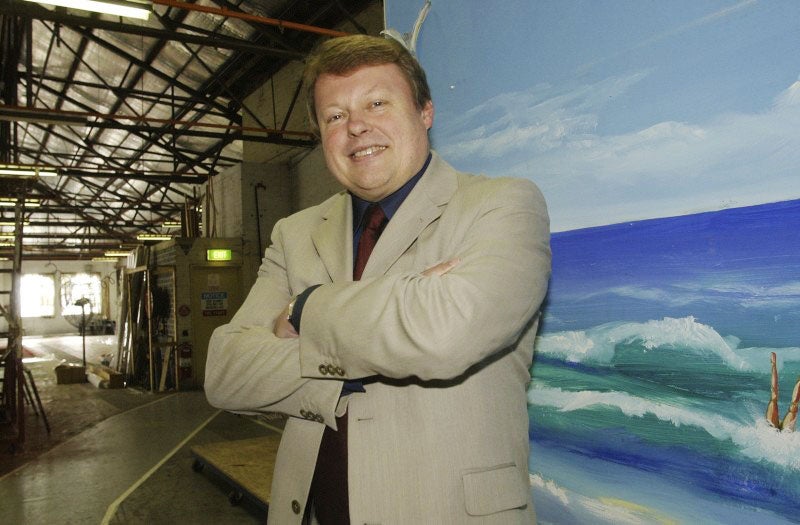Heart attack kills Hickox on eve of ENO season
Tributes pour in for conductor who founded City of London Sinfonia

Richard Hickox, one of Britain's foremost conductors and the founder and musical director of the City of London Sinfonia, has died of a suspected heart attack.
The 60-year-old, who was musical director of Opera Australia and one of the most widely-decorated conductors in the world, died after a recording session in Wales.
He was due to conduct the English National Opera's production of Riders To The Sea, by Vaughan Williams, which will open this Thursday. The ENO said yesterday that the production will go ahead and will now be dedicated to Mr Hickox. Thursday's performance will be led by Edward Gardner, the music director of the ENO.
In a career which saw him conduct more than 300 recordings and receive five Gramophone Awards, including his most recent in 2006, Hickox acquired a plethora of prestigious titles.
Awarded a CBE in 2002 for his contribution to British musical life, he was associate guest conductor of the London Symphony Orchestra, recently had his contract as musical director of Opera Australia extended until 2012, had been director at the Spoleto Festival in Italy for five years, and was Conductor Emeritus of the BBC National Orchestra of Wales.
He had been working with the orchestra on a CD recording in the Brangwyn Hall, Swansea, when he was taken ill on Sunday.
David Murray, the director of the orchestra, said: "As well as losing an inspiring conductor, we have lost a great friend and supporter of the orchestra and chorus. His repertoire was wide and varied but his advocacy of British music was second to none." Hickox's agent, Stephen Lumsden, said yesterday: "The shock of Richard Hickox's unexpected death ...has robbed the music world of one of its most popular and respected musicians.
"Literally thousands of musicians who were touched by his talent, energy, and that remarkable generosity of spirit of his will feel that loss as well."
Mr Hickox, who was a regular guest at the Royal Festival Hall-based Philharmonia Orchestra, also conducted several of the world's leading orchestras, including the New York Philharmonic, the Bavarian Radio Symphony, the Leipzig Gewandhaus and Orchestre de Paris.
The recipient of Royal Philharmonic Society Music Awards, Classical Brit Awards, and the first Sir Charles Grove Award, as well as his five Grammys, Mr Hickox also appeared at many BBC Proms, including Cheltenham, Bath, and Aldeburgh.
Roger Wright, BBC Radio controller and director of the BBC Proms, paid tribute to the man he described as "a wonderful colleague".
"The classical music world has lost a major figure whose musicianship and enthusiasm endeared him to audiences in opera houses and concert halls throughout the world.
"Richard was a magnificent conductor and did wonderful work with many BBC performing groups, particularly his wonderful spell as principal conductor of the BBC National Orchestra of Wales," Mr Wright added.
Mr Hickox had a long connection with the Royal Opera in Covent Garden, where this season he was scheduled to conduct both L'Elisir d'Amore and The Beggar's Opera. He is survived by his wife, the mezzo-soprano Pamela Helen Stephen, and his three children.
Explainer: The stresses of the orchestra pit
*Stress will the first suspect as the cause of Richard Hickox's tragic early death. All performers have to face it but for conductors, the most visible member of the orchestra who carries the greatest responsibility, it is multiplied many times over. Stress is often suspected as a cause of heart attacks, sometimes unfairly. Research shows it can trigger a heart attack in vulnerable patients with pre-existing disease. But there is no evidence that stress causes heart problems in people with healthy arteries. Stress increases the blood pressure and makes the blood stickier by boosting the platelet count, so it clots faster. This is useful in battle when there is a high risk of injury but not helpful when arteries are already narrowed by fatty deposits. In these circumstances, stress may cause a blood clot to form which circulates round the body until it becomes lodged in the tiny coronary arteries that supply the heart muscle, causing a blockage and a heart attack. Evidence suggests that patients whose blood pressure is slowest to return to normal following a period of stress and those with the highest platelet counts are most at risk of a stress-triggered heart attack.
Jeremy Laurance
Join our commenting forum
Join thought-provoking conversations, follow other Independent readers and see their replies
Comments